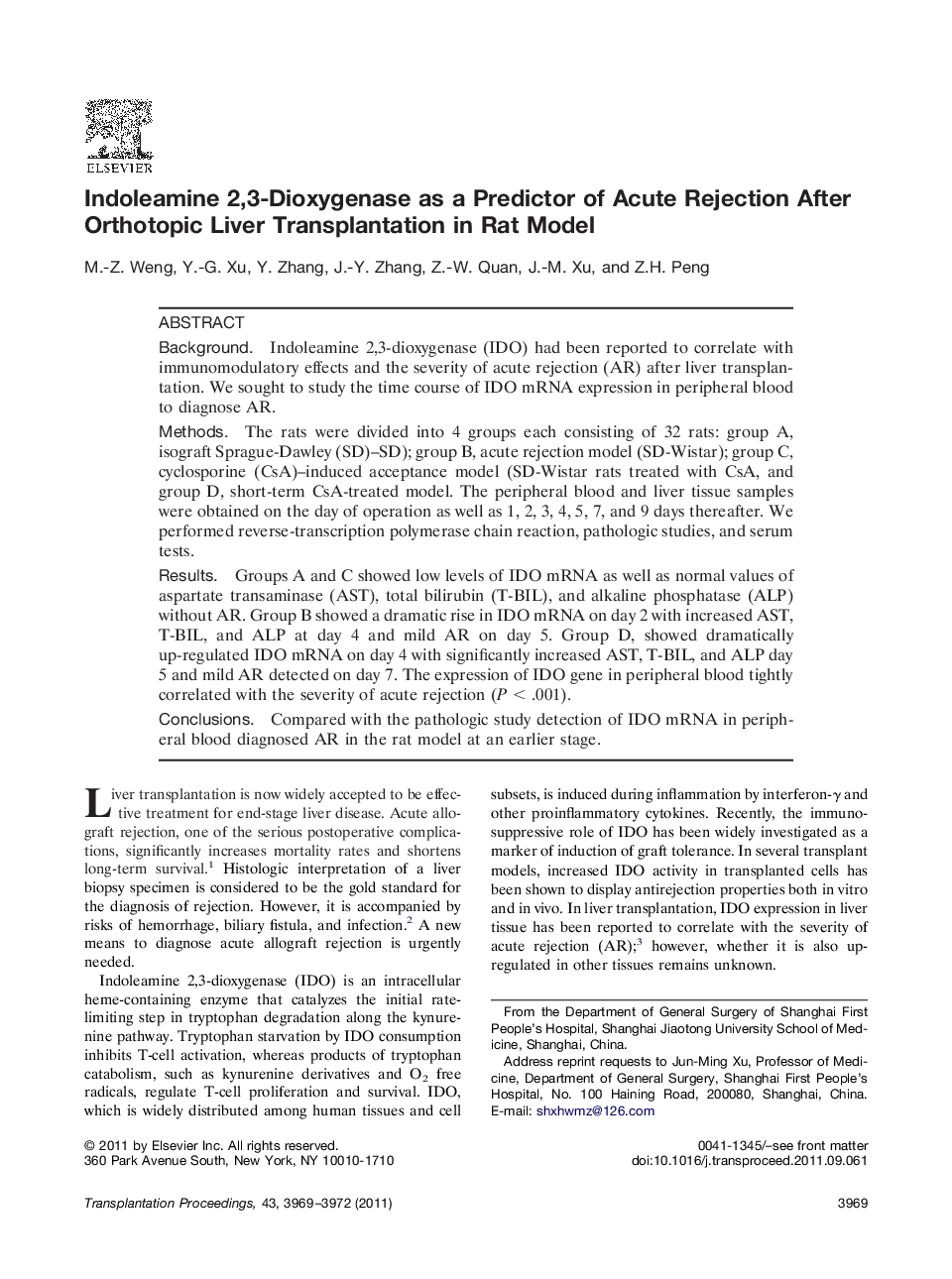| Article ID | Journal | Published Year | Pages | File Type |
|---|---|---|---|---|
| 6249058 | Transplantation Proceedings | 2011 | 4 Pages |
BackgroundIndoleamine 2,3-dioxygenase (IDO) had been reported to correlate with immunomodulatory effects and the severity of acute rejection (AR) after liver transplantation. We sought to study the time course of IDO mRNA expression in peripheral blood to diagnose AR.MethodsThe rats were divided into 4 groups each consisting of 32 rats: group A, isograft Sprague-Dawley (SD)-SD); group B, acute rejection model (SD-Wistar); group C, cyclosporine (CsA)-induced acceptance model (SD-Wistar rats treated with CsA, and group D, short-term CsA-treated model. The peripheral blood and liver tissue samples were obtained on the day of operation as well as 1, 2, 3, 4, 5, 7, and 9 days thereafter. We performed reverse-transcription polymerase chain reaction, pathologic studies, and serum tests.ResultsGroups A and C showed low levels of IDO mRNA as well as normal values of aspartate transaminase (AST), total bilirubin (T-BIL), and alkaline phosphatase (ALP) without AR. Group B showed a dramatic rise in IDO mRNA on day 2 with increased AST, T-BIL, and ALP at day 4 and mild AR on day 5. Group D, showed dramatically up-regulated IDO mRNA on day 4 with significantly increased AST, T-BIL, and ALP day 5 and mild AR detected on day 7. The expression of IDO gene in peripheral blood tightly correlated with the severity of acute rejection (P < .001).ConclusionsCompared with the pathologic study detection of IDO mRNA in peripheral blood diagnosed AR in the rat model at an earlier stage.
